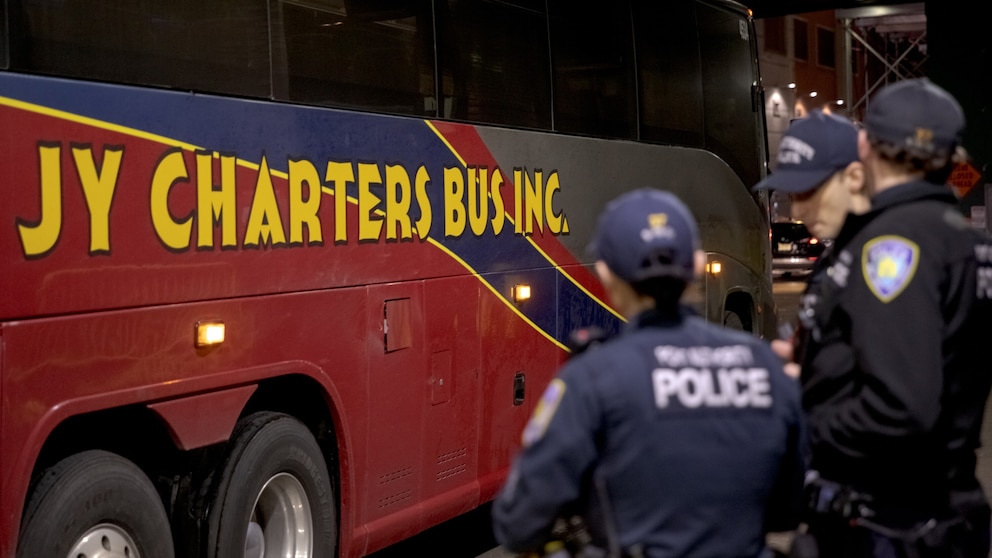New York City Mayor Eric Adams has announced a lawsuit against 17 bus and transportation companies helping to send asylum-seekers to the city as it deals with major budget issues surrounding the crisis.
The city is seeking $708 million in the lawsuit to cover costs for caring for migrants.
“New York City has and will always do our part to manage this humanitarian crisis, but we cannot bear the costs of reckless political ploys from the state of Texas alone,” Adams said in a statement. "Today, we are taking legal action against 17 companies that have taken part in Texas Governor [Greg] Abbott’s scheme to transport tens of thousands of migrants to New York City in an attempt to overwhelm our social services system.
He continued, “These companies have violated state law by not paying the cost of caring for these migrants, and that’s why we are suing to recoup approximately $700 million already spent to care for migrants sent here in the last two years by Texas.”



States using states is hard, winds up immediately in the Supreme Court and they can’t really use their own state laws against each other basically. In this case NY can hold the bus companies over the fire of NY state law.
Also, New York City isn’t a state.
True enough, to even sue I think they may need to essentially get NY state on board with it as well.
Nah, X vs State is as valid as State Vs. X, for jurisdiction.
Like others have said though, other states don’t really have to follow your city laws, so it’s much easier to get the companies that do have to.
The SCOTUS does have original jurisdiction over interstate lawsuits of this sort, but Congress has also set up district and circuit courts to take up the slack before SCOTUS has to touch it–they process the cases first and then it goes up to the SCOTUS if there is a particularly impactful or unresolved question to decide.